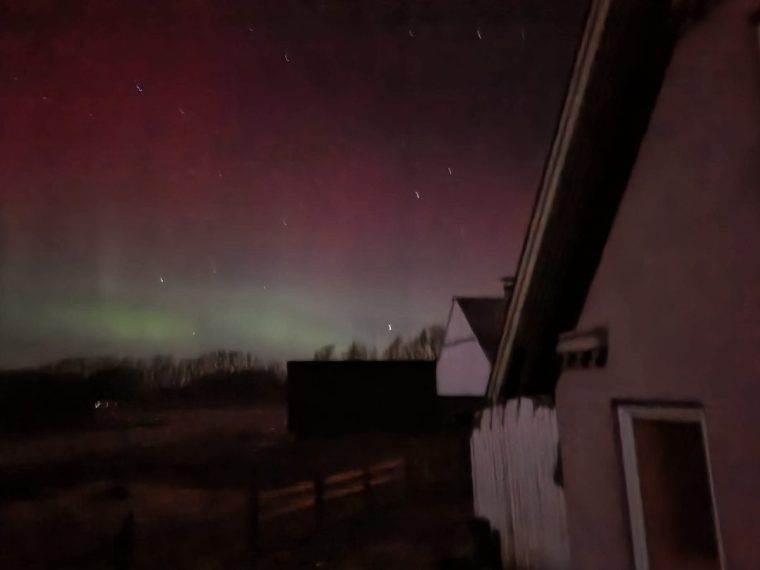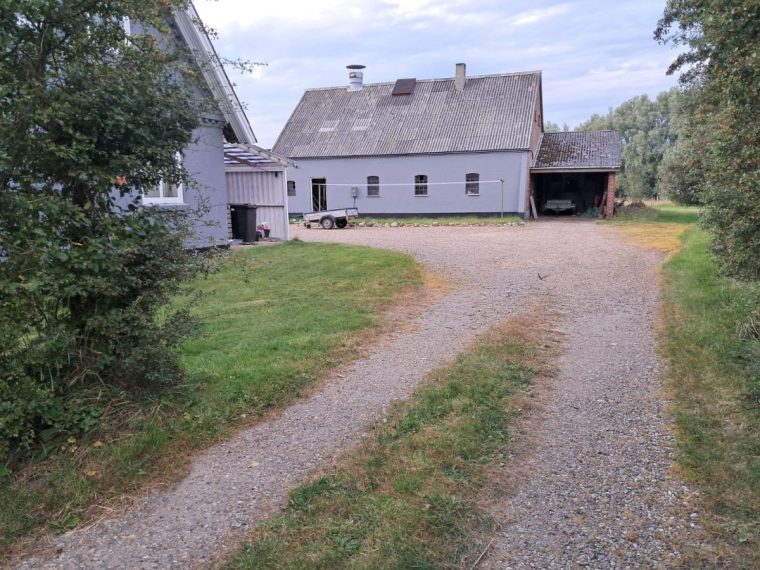A holiday romance took Angela Mathiesen to Denmark, where she now lives on a farm for rescue animals
A British woman who moved to Denmark on a whim and then stayed for three decades says her life in the Danish countryside keeps her young.
Angela Mathiesen, 60, who was born in Manchester, never planned to move to Denmark. However, she made the move in 1997 when she was in her twenties after meeting a Danish man while on a girls’ holiday in Tenerife.
Although she and the man she met broke up a year after she arrived, she met someone else and they married in 2000. After moving to Copenhagen, Mathiesen got a job working at the airport for DHL.
Fast-forward 28 years, and Mathiesen now lives in the Danish countryside, having left the big city in 2006 after a stressful divorce. She works as a carer for the elderly and looks after rescue animals.
Mathiesen settled on her four-acre farm in Sønder Bork, a village on Denmark’s largest island, Jutland, in the west of the country. On a clear night, she can see the Northern Lights.

“I was enamoured with Copenhagen when I first moved, but I wouldn’t advise anyone to live there now, let alone live there myself,” she told The i Paper. “There are far too many people living there that have no interest in Danish culture.”
Rural life forced her to be more Danish
Mathiesen finds Jutland very different to Zealand, the island to the west where Copenhagen is located. Denmark is made up of around 400 islands, and she said each one feels like another country.
She says the key to learning about a country and its culture is the language, and a lot of foreigners living in Copenhagen were not interested in assimilating and tended to stay in their own bubbles.
Away from the capital, barely anyone speaks to her in English, she says, so she has had to learn Danish. The countryside forces her to be more Danish.
Nowadays, Mathiesen has a life she is proud to have carved out, where she wakes up to care for her rescue animals, including five horses, two pigs and various rescue cats. In the evenings, she looks after the elderly.
“There’s something about living here that makes me feel at peace,” she said. “Barely anyone speaks English unlike Copenhagen, so I must speak Danish and I have to say, I’ve improved. I’ve even learnt a bit of the local dialect from around here, too.”
Adapting to country life wasn’t without its surprises. Mathiesen initially found social differences particularly amongst women the most striking. She described how they rarely got dressed up like she does and tended to have a “my way or the highway” attitude.
The other thing she noted about Danish culture is how respectful the older generations are.
Taking on a farm
Meanwhile, nothing prepared Mathiesen for the local attitude towards horses. “They have a very Viking way of looking at animals,” she said. “I fell out with a friend who had her perfectly healthy horses put down because she was moving and didn’t have space for them.”

Mathiesen said she decided to take matters into her own hands. Five years ago a local woman offered to lease her the farm for 5,609 DKK (£650) in return for looking after the land.
“I was over the moon with the offer as my mum used to be a live-in housekeeper for a farmer, so I used to spend a lot of my time with animals,” she said.
The initial months were challenging. Ragwort – a plant toxic to humans and livestock – grew across the fields. She had to clear it before building stables and welcoming her first animals.
Caring for animals also came with unexpected costs. Mathiesen discovered that chipping and registering each animal could cost £1,000, and the high VAT made feed expensive. She buys fodder across the border in Germany for half the price.
To help with costs, Mathiesen organises local school visits to her farm.
Diagnosed with a rheumatoid arthritis in 2014, Mathiesen says that looking after the animals gives her purpose as well as a distraction – she has to show up for them every day without fail.
“If I sat on my behind all day, I wouldn’t be able to move by now,” she said. “So, yes, I’ve rescued them, but really they’ve saved my life and my way of living. I’d be lost without them.”
